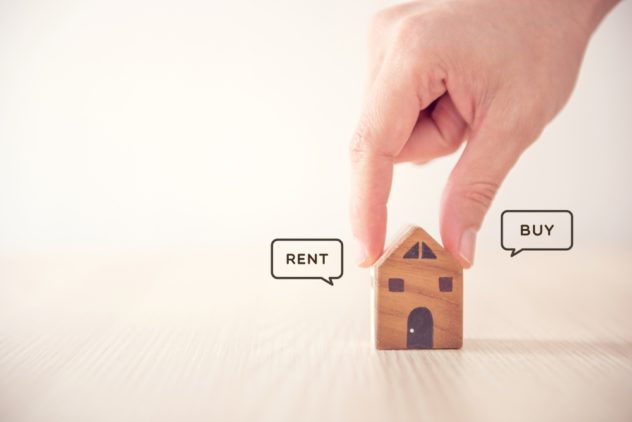Rent or buy – which is right for your business?
Today, SMEs have so many options when it comes to acquiring the physical assets they need to run their business – whether that’s their delivery vehicles, manufacturing equipment, technological devices like PCs, tablets and laptops, even solar panels – and of course the actual premises they operate from.
Knowing when it’s best to rent or lease said assets, or when the upfront cost of buying them outright is going to pay off in the long run, isn’t always simple. We examine how to go about weighing your options and deciding which is right for your company.

Property
There are a host of reasons investing in buying your own premises outright is attractive to business owners.
- Firstly, you’re working towards owning an asset that may open other doors and credit lines for you, and one which you can reasonably expect to appreciate over time, possibly quite substantially.
- You’re free to make any changes or alterations to the building that may be beneficial for your business.
- You may enjoy significant tax deductions.
- You won’t ever have to worry about your landlord changing their plans and giving you notice to vacate, leaving your business potentially ‘homeless’
- And of course, unlike renting, there’s an eventual end in sight to those monthly payments.
Owning your own property comes with a certain degree of status too. However, there are certainly times when renting does make more sense.
- Depending on the area and your industry, your monthly mortgage payment may not actually work out cheaper when you factor in other costs like maintenance, rates, insurance, and additional services like security or cleaning which could normally have been included in your tenant levies.
- For a rapidly growing company, leasing bigger and bigger premises over the short term rather than being tied to one location may be appealing as well.
- Young companies who haven’t yet found their ideal niche or are still exploring the ideal territories to operate in may wish to delay purchasing property until they can explore all their options and rent.
PCs, tablets and laptops
As every business comes to depend more and more on technology, having access to the latest, fastest and most powerful computing equipment can make a massive difference to the productivity of your employees. Buying new desktops, laptops and tablets every couple of years, however, quickly becomes a very pricey affair. In addition, you bear the responsibility and cost for any outside technical support or maintenance you need to keep your machines running. Unless you’re in IT yourself, partnering with a firm such as Hire Intelligence Ireland, which allows you to rent and upgrade the tech you need and have a support team on hand, may be your best option.
Not every industry or company is the same, of course, and businesses which depend less on technology may find a BYOD (Bring Your Own Device) policy, or even sticking with their old legacy tech to be sufficient.
Vehicles
while you need to consider a lot of aspects when deciding between leasing or purchasing vehicles (either new or secondhand) for your business, there are a few standard guidelines to orient you:
Lease if you:
- Expect you’ll need to upgrade your vehicles relatively regularly.
- Only need the vehicle for a short duration or limited mileage.
- Lack the funds to purchase outright, or your credit rating isn’t sufficient to qualify for a vehicle loan.
Buy if you:
- Intend to use the vehicle extensively for several years.
- Have your heart set on a particular make or model.
- Want to add your own branding or personalize your vehicle.
- Want to take advantage of vehicle depreciation deductions.
Investigate all the options in your area and run the numbers for both new and used vehicles before you make a final decision. Some companies also offer ‘rent to own’ leases, which may provide the ideal middle ground between the two.
Solar power and renewable energy
Thanks to increasing competition between the large solar panel manufacturers and rapid advancement in renewable energy technology, it’s never been more affordable for small businesses to get in on the solar trend. In fact, solar panel prices have dropped more than 80 percent since 2011, meaning that companies may now be able to pay off their buying and installation costs in as little as three years, after which they’ll be enjoying free electricity for decades to come.
And now, with solar leases and PPAs (power purchase agreements) also becoming an option, every small business should be exploring the possibilities.
Whatever it is you’re looking at buying or renting, it’s important to consider as many angles as possible, get the relevant data you need to make an informed decision, and if you’re still in doubt – reach out for some unbiased advice from those you trust.


